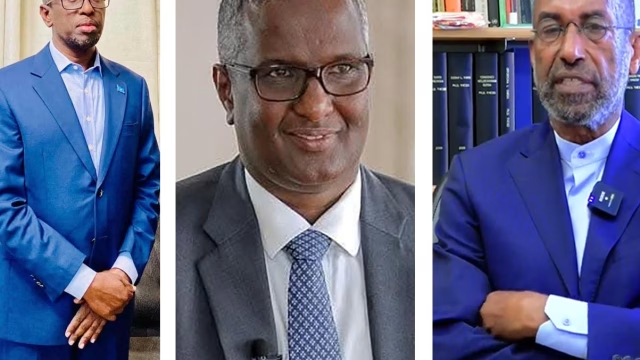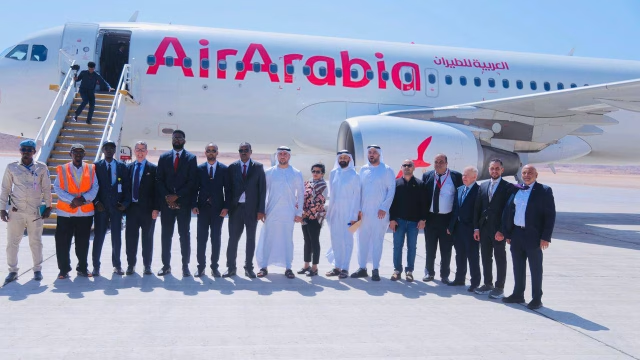The National Union of Journalists (NUSOJ). in cooperation with the United Nations Educational, Scientific and Cultural Organization…
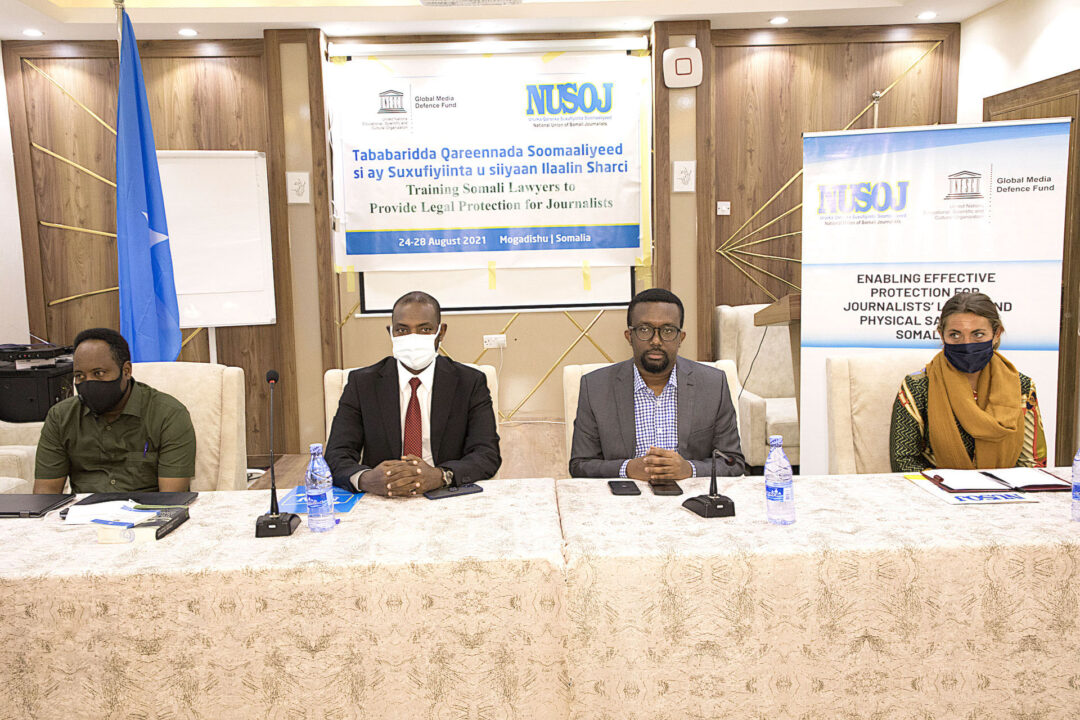
The National Union of Journalists (NUSOJ). in cooperation with the United Nations Educational, Scientific and Cultural Organization (UNESCO) is proud to announce the launch of the first-ever network of media lawyers capacitated to defend journalists and news media organisations who are attacked because of the nature of their work. The network was established on the final day of a historic training programme designed for Somali lawyers to provide legal protection for journalists. The programme focused on ensuring lawyers are equipped with the tools needed to promote fundamental rights related to media freedom based on international and regional legal standards.
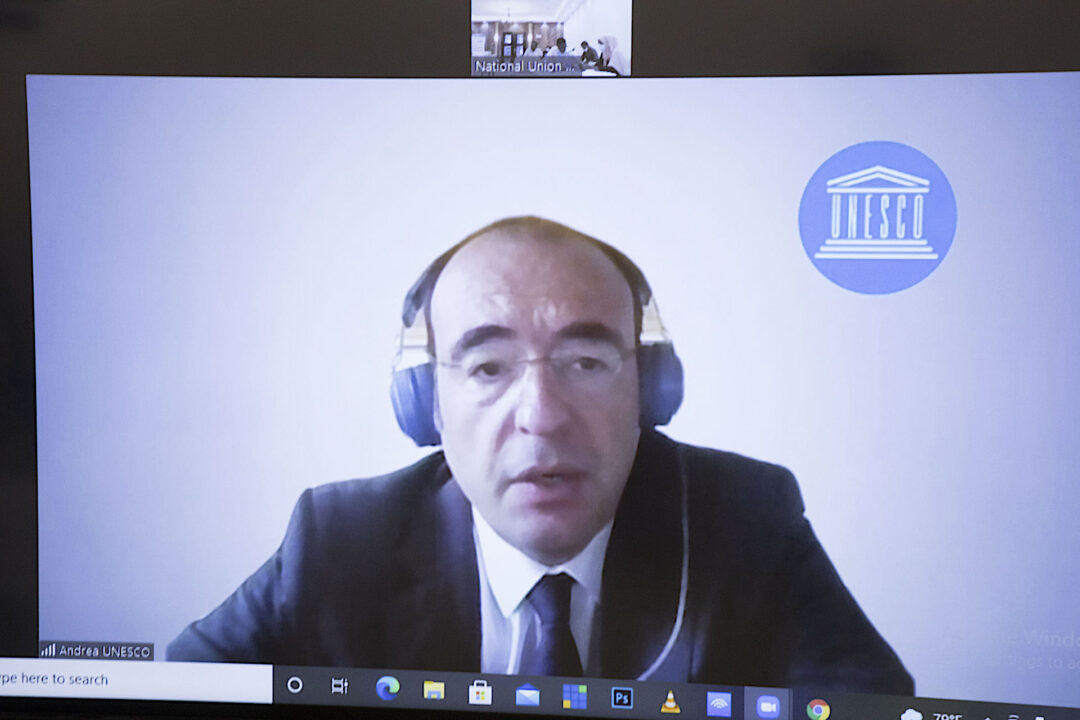
The training programme, which was held from 24 to 28 August 2021 in Mogadishu, received strategic support and was aligned to national and international frameworks on freedom of expression and its corollaries, access to information and press freedom. The Chief Justice of Somalia and the President of Supreme Court Honourable Bashe Yusuf Ahmed officiated the training and congratulated UNESCO and NUSOJ for spearheading such a momentous capacity-building initiative.
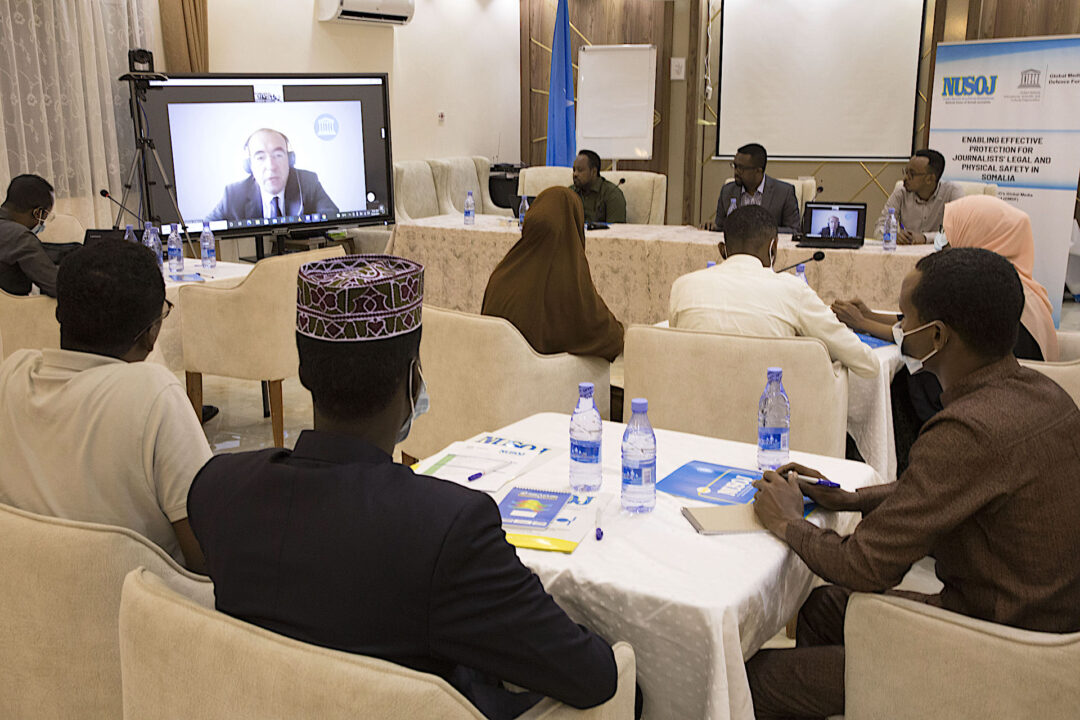
“Media Freedom is sacrosanct to our society. Indeed, our constitution entrenches the rights to free expression & media freedom. So, nothing & no-one will distract us from our duty of providing the necessary legal protections to journalists” said Honourable Bashe Yusuf Ahmed, the Chief Justice of Somalia and the President of the Supreme Court.
“I assure you of our cooperation with NUSOJ and international partners like UNESCO to legally safeguard media freedom and protect journalists. We shall include in the curriculum of the institute of judges and lawyers an important component of freedom of expression standards and safety of journalists, in order to inculcate an appreciation of freedom of expression, press freedom and defence of journalists, among our judges and lawyers” announced the Chief Justice during his opening remarks.
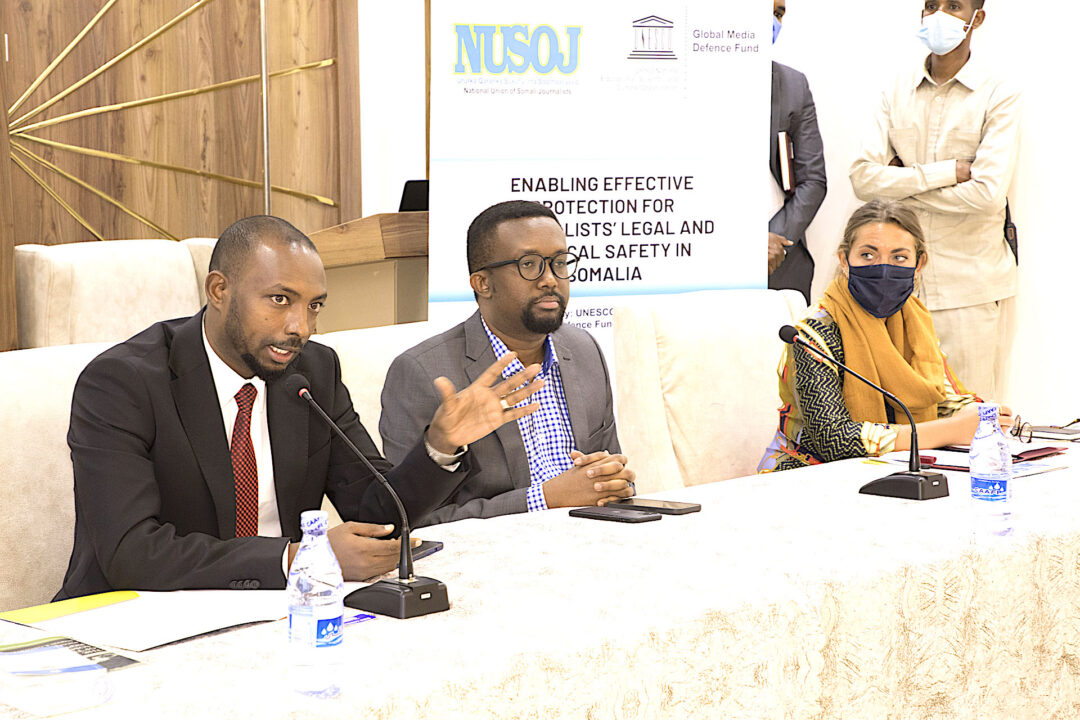
Fifteen (15) lawyers, including 3 female lawyers, from Puntland, Southwest, Jubaland, Galmudug, Hirshabelle and Banadir (Mogadishu) as well as senior judicial authorities and officials came together to learn, discuss and collaborate on how best to defend journalists and their right to media freedom. The group received training on defamation law, international law and freedom of expression (offline and online), media law, the right to privacy, national security and state secrets, public order and morality, and judicial proceedings including the right to fair trial and access to information.
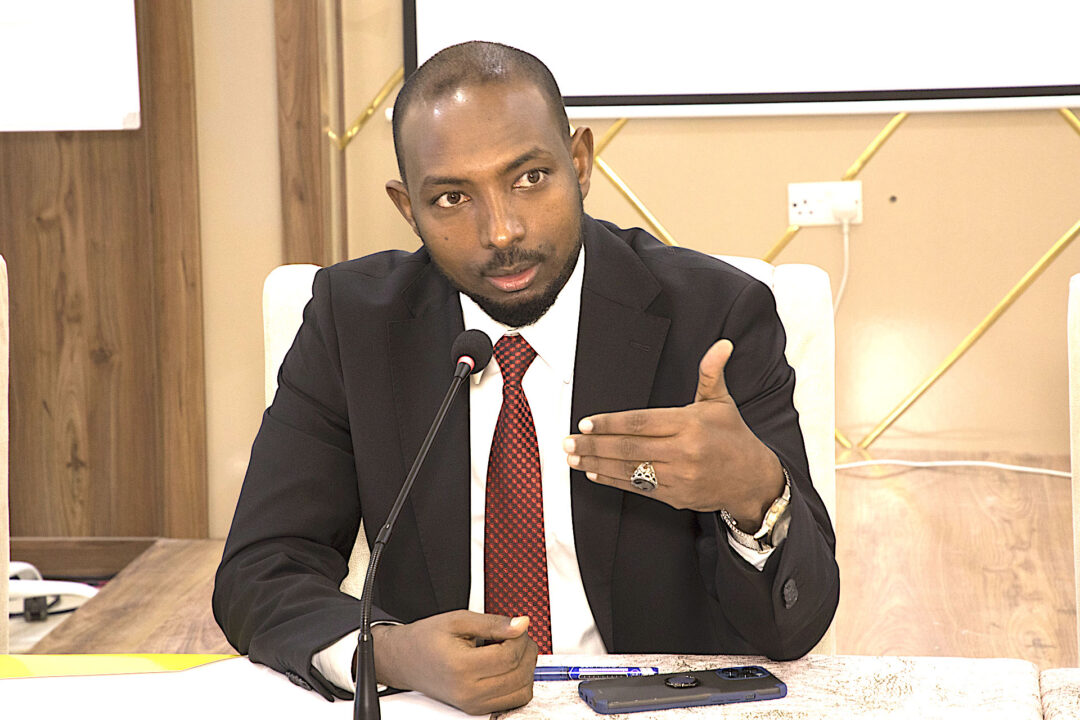
The trained lawyers also improved their knowledge of international legal standards and regional human rights mechanisms, such as the African Court on Human and Peoples’ Rights, and the African Commission on Human and Peoples’ Rights, with practical tips on how to litigate before these mechanisms.
NUSOJ realises that no training should take place in a vacuum and the impact of the efforts are only evident once lawyers are supported to utilise the knowledge they have received. The union is therefore encouraged by the Chief Justice’s reassurances of improved cooperation between journalists and the judiciary in Somalia.
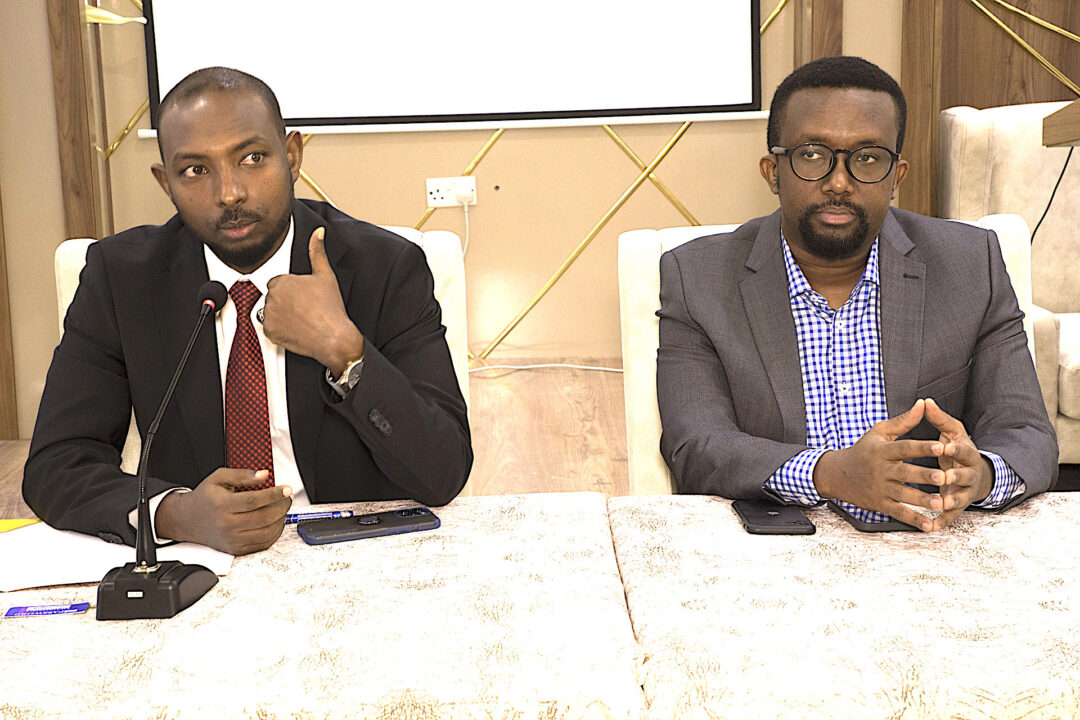
“The results of this very timely training will ultimately lead to an increased number of journalists and/or news media organizations who face threats, attacks, restrictions or judicial pressures, able to access pro-bono legal assistance,” said Omar Faruk Osman, NUSOJ’s Secretary General. “This remains critical in our country where the risks of working in a media industry are extremely high and too often, deadly. Journalists and news media organisations need to know there is a pool of capable and well-informed professionals available to defend their rights if and when required.”
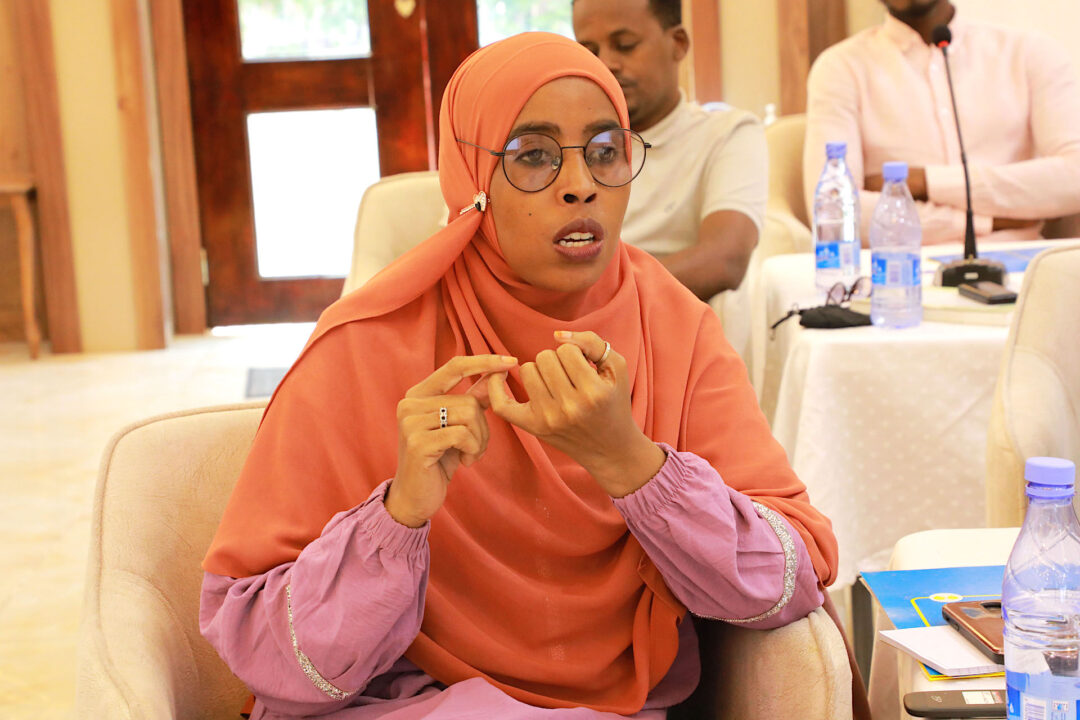
The lawyers, who will closely be working with the Journalist Legal Defence Unit (JOLED) established by NUSOJ and UNESCO, also studied cases that could be pursued before domestic and/or international fora. This level of analysis provides precedence for the constitutionality of independent reporting, criminal defamation as a violation of the right to freedom of expression, legal action against closures, bans and suspensions of media houses, and how to argue strongly for the end of impunity for crimes against journalists.
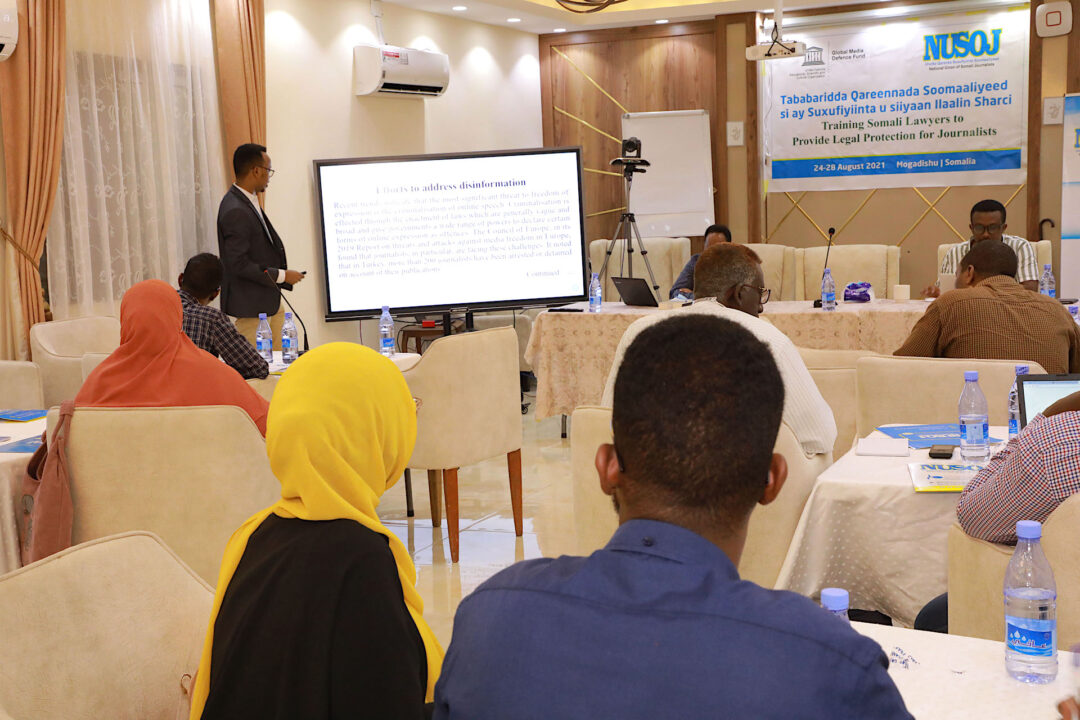
“UNESCO is committed to continue supporting judicial stakeholders in Somalia, and Africa, in taking key decisions on issues related to freedom of expression, as well as prosecuting crimes and attacks against journalists, to promote and protect this fundamental right”, said Andrea Cairola, Programme Specialist at UNESCO’s Section for Freedom of Expression and Safety of Journalists.
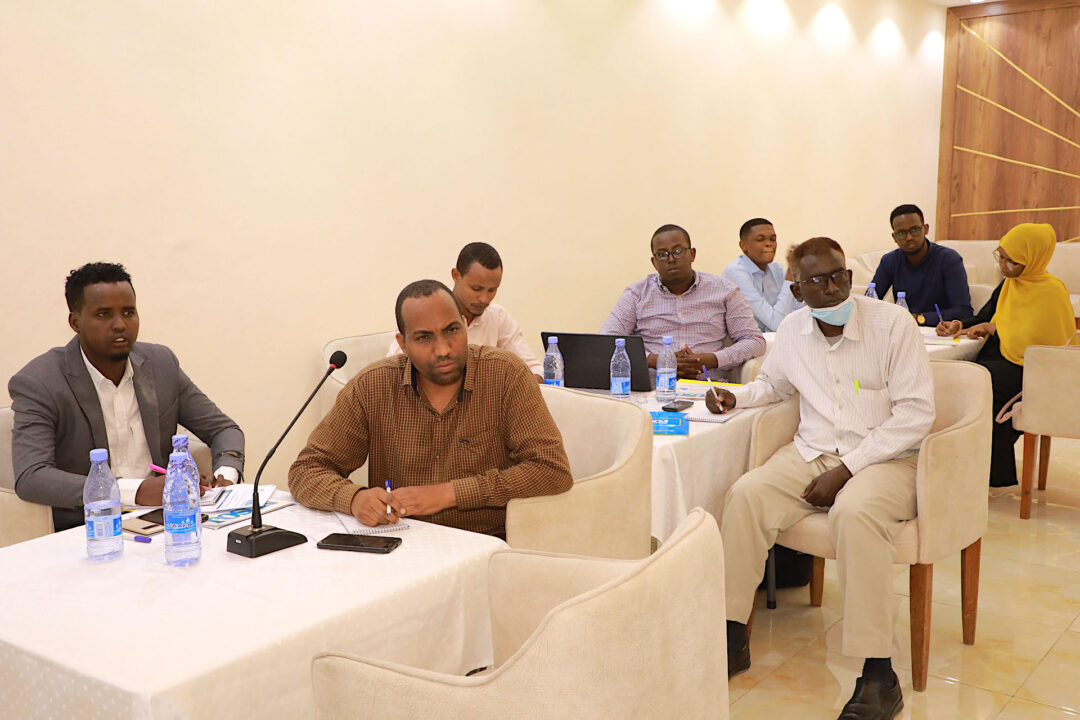
NUSOJ extends sincere gratitude to the Global Media Defence Fund (GMDF) for its support in making this capacity building program a reality. GMDF is a UNESCO Multi-Partner Trust Fund established within the framework of the Global Campaign for Media Freedom and under the overall umbrella of the UN Plan of Action on the Safety of Journalists and the Issue of Impunity.
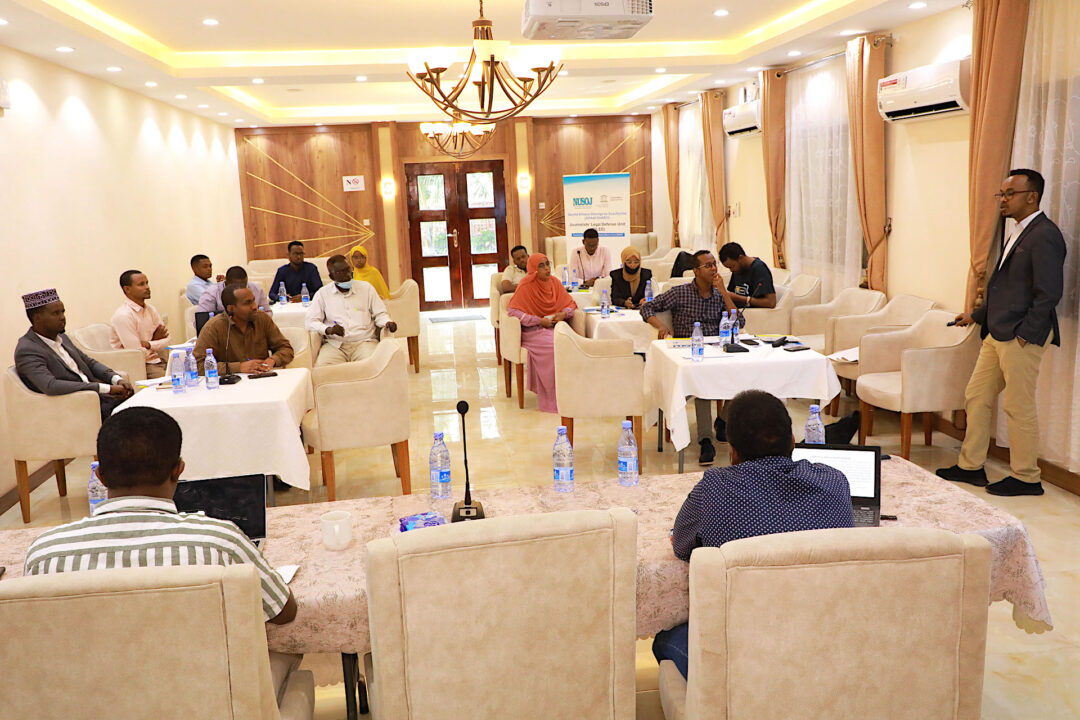
“We are certain that this newly established network is an exciting and concrete step towards building a safer working environment for journalists and for entrenching the importance of media freedom in Somalia” added Osman.
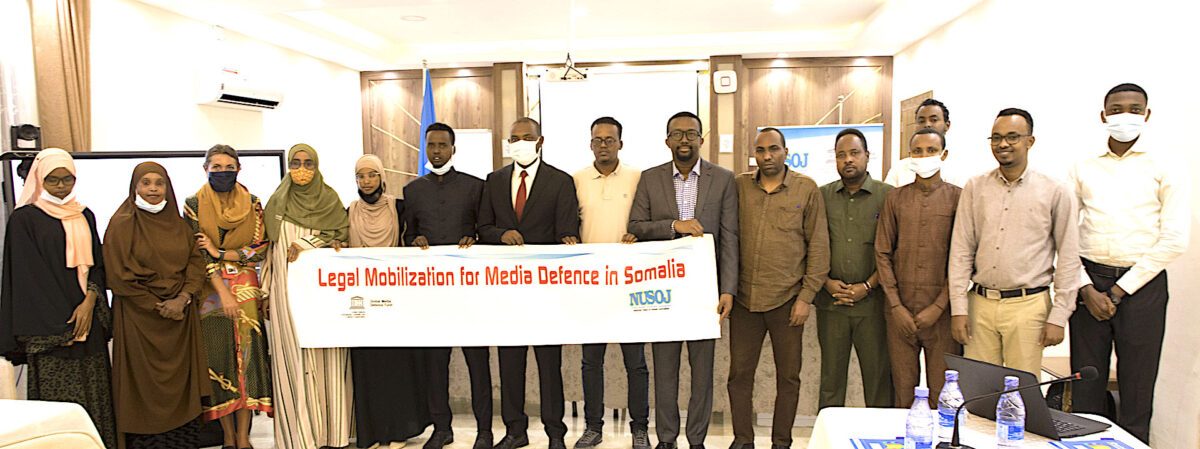
Horseed Media
